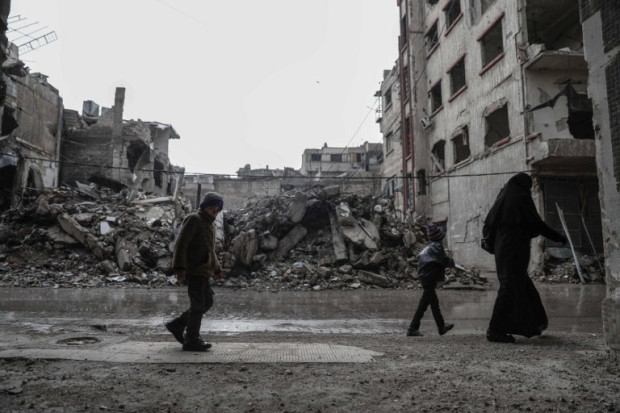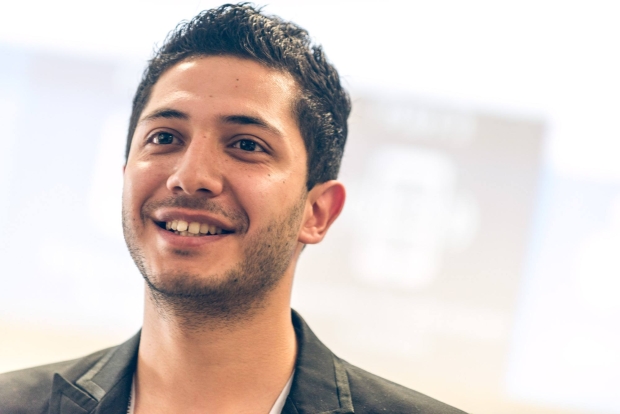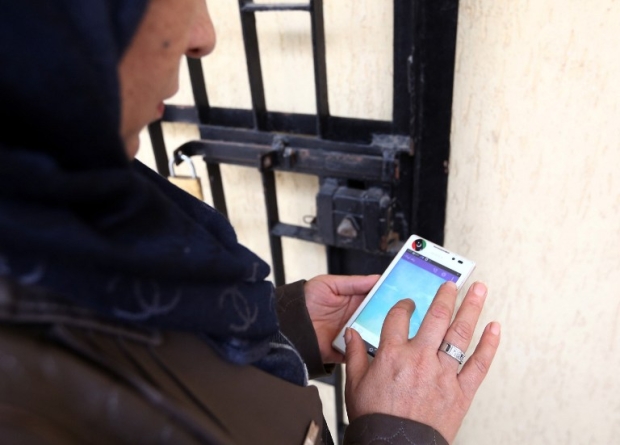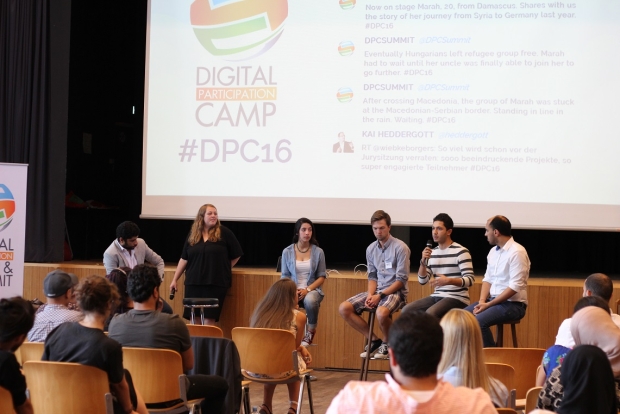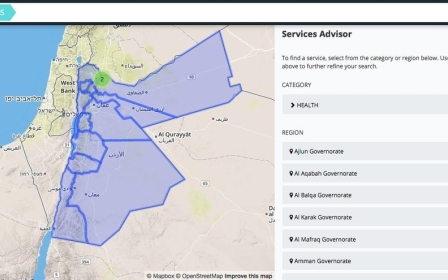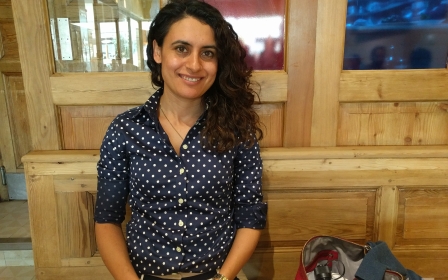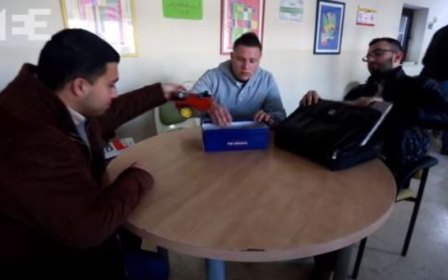Syrian invents game-changing software to keep war-torn families in touch
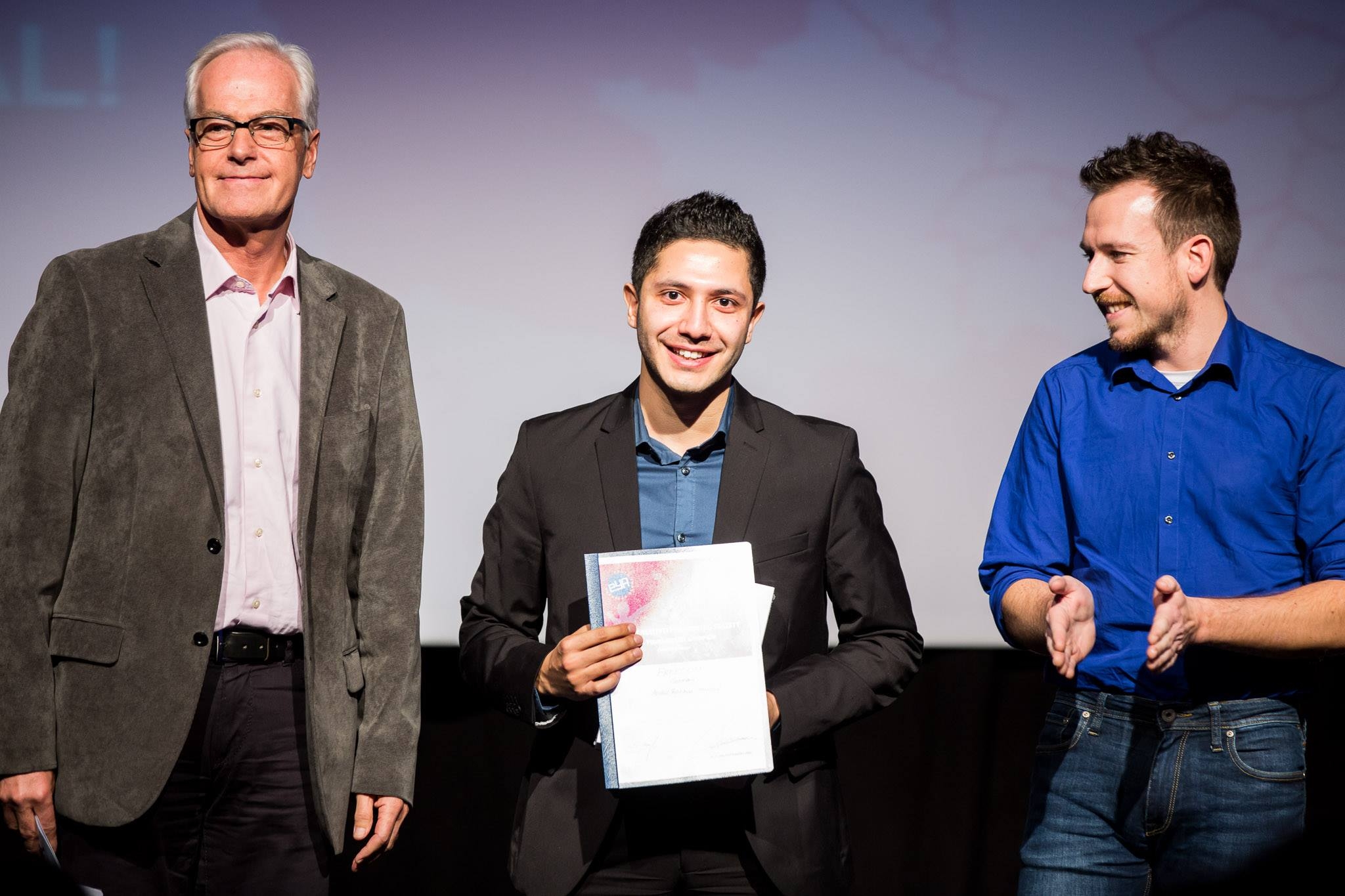
Few inventors can call their brainchilds a "game changer". But that is exactly what the grand jury at the European Youth Awards called Abdul Rahman Alashraf's creation. The young Syrian inventor was presented with a European Youth Award in December 2016 for his winning software programme FreeCom, which aims to allow the transmission of messages between users without an internet connection.
For those living in regions afflicted by war and censorship, the potential of this technology is no small feat.
More then 300 young contestants descended on Graz, Austria, for the annual technology contest. Yet Alashraf, 27, stood out for his unique background and vision to bridge theoretical research with the needs of millions living in war-torn countries.
“The internet is not any more what it was intended to be 25 years ago when Tim Berners-Lee invented it,” the jury said in their report. “Nowadays a few big companies run the internet, online communication is controlled, every step is constantly watched. FreeCom is a fresh new approach to communication technology and a potent answer to common methods of oppression in the digital era.”
The road from Damascus
As Syria descended into violent chaos in 2011, internet connectivity became a major issue. Many Syrians found themselves cut off from friends and loved ones for days at a time, particularly in states of emergency, due to constant power cuts and government-mandated internet restrictions.
Alashraf said that shelling usually occurred during the day when at least one of his family members was out. Not knowing how close they were to the explosion or whether they were affected by it or not, the rest of the family would "immediately" try to call them.
"If you were lucky you might [get through] after 15 to 30 minutes," he said.
One morning in 2013, a mortar fell on the roof of the centrally located office building where he worked part-time, badly injuring one of his colleagues. While the ensuing chaos terrified and disoriented Alashraf, he knew it could have been worse. He was thankful that the electricity and online networks were functioning so that he could immediately reach out to his family and medics who rushed to the scene.
Earlier, in June 2012, there were armed clashes in his sister’s neighbourhood just outside the city centre, an area afflicted by chronic power cuts and internet failure.
For three days, his sister was severed from any lines of communication, unreachable by Alashraf or his parents. During that gut-wrenching stretch of uncertainty, they had little choice but to helplessly watch the conflict from afar.
“You hear in the news that something is happening there, and you see from the videos that it’s your sister's neighbourhood,” Alashraf says. “It drives you crazy because you can’t do anything. You can’t go there because it’s surrounded by military. And they don’t even have electricity.”
'You hear in the news that something is happening there, and you see from the videos that it’s your sister's neighbourhood'
Only when his sister left the area were they able to calm their nerves after finding out she was OK.
At the time, Alashraf was completing a bachelor in informatics in Damascus and taking constant notes about the situation. He reflected on ways he could put his technical knowledge to use for others.
“The hardest thing was being in my 20s, full of ideas, and being completely unable to do anything because of the situation,” he said. “The choices were really limited.”
'The hardest thing was being in my 20s, full of ideas, and being completely unable to do anything'
Within months of graduating in 2014, Alashraf applied to programmes abroad and was accepted at the Technology University of Applied Sciences in Stuttgart, Germany, where he completed his masters in software technology.
While pursuing his studies, he also started working as a consultant with a subsidiary of Porsche.
Although he felt welcome and safe in Germany, he found himself constantly preoccupied with Syria and wondering about the safety of family members he had left behind.
One of his first ideas came to him in his final days in Syria. It was to create an application that allowed people to notify others if they were near an explosion or armed attack - similar to Facebook’s check-in feature. He discussed the idea with colleagues and professors but kept returning to the same fundamental problem: people in war zones usually did not have an internet connection.
One day, a conversation with a visiting student from Venezuela made him realise something. After revealing that she would sometimes go weeks without being able to contact her family back home, due to unreliable network access in South America, Alashraf realised that his country’s internet problems were shared by many around the globe.
“I thought these problems were only in our region, but I realised there are many places where we don’t even know that bad things are happening," he said.
When Porsche proposed that Alashraf embark on a new research project of his choosing, he seized the opportunity to tackle the global problem of internet connectivity.
The project would lay the seeds of FreeCom, allowing him to channel his anxiety about relatives back home into work that could aid people with similar problems on a global scale.
How it works
Alashraf looked at already existing technology on a typical smartphone that a Syrian or anybody in a disaster zone might expect to have on hand.
He reasoned that most mobiles would have a microphone and a speaker, some Bluetooth capability, and perhaps a flashlight. The solution lay in co-opting those crude, common tools into a programme that could transmit messages between phones when the internet had failed.
He found a way to do so, albeit initially over short distances. Text messages could be encrypted and sent as encoded sound sequences, a pattern of beeps that would be picked up by the microphones of nearby mobiles and transmitted to others in the midst of a disaster.
At night, flashing lights could also be directed across an open area, which another device could capture and direct onward. Bluetooth signals would also switch on in the event of a disaster, constantly broadcasting vital information to anybody within range on the network.
Alashraf compares this method of getting out information to a viral outbreak, with messages spreading to become available and decodable to anyone within the network, but impossible to trace from an original source.
Messages circulated through users on this network would be encrypted, preventing their detection by outside actors and others who have not gained programme access.
Challenge of connectivity
The past decade has seen a dramatic rise in rates of internet connectivity across the developing world. While the numbers tell an optimistic story, some details are obscured by vast differences in speed, reliability, and political restrictions.
In 2016, 54 percent of adults in developing countries reported having at least partial access to the internet, up from from 17 percent in 2006.
Yet speed varies considerably from one country to another and internet connections can crash during times of high traffic. While the average internet speed is 15 mbps in the Netherlands, it is just 2 mbps in Syria.
With the country submerged in a brutal six-year civil war, Syria has largely bucked the global trend of sharply rising access. As of 2016, only about 30 percent of the population was able to regularly get online.
New take on old technology
Peter Druschel is a computer science engineering professor and director of the Max Planck Institute for Software Systems. He has been conducting research into mobile networking and computer systems for 25 years and has watched how technology has evolved since the early 90s.
He applauds the fresh perspective that Alashraf has brought to the field, but says it is largely a variation on research that he has seen before.
“This is a fairly well developed area in terms of the underlying technology. In terms of software that you can actually download and run on a phone though there’s not that much.”
He believes there are several reasons for that lack of real software, issues that could become obstacles for FreeCom’s large-scale implementation on the ground in places such as Syria.
Druschel likens these types of ad-hoc mobile networks to back-country roads designed for low volumes of traffic. In the event of a disaster where this network would be most crucial, he predicts that a tsunami of usage could overwhelm the system, with blockages at key access points creating bottlenecks in the information flow.
However, he said that there are ways this pressure could be reduced, adding that this software would be of particular interest to civil society groups working in hotspots around the world.
While FreeCom is still in prototype form, Druschel predicts that it would be relatively cheap and easy to include as added software on many mobile devices.
Alashraf has resisted a number of offers from investors and businesses to develop the software and take his invention in a profit-driven direction. Instead, he wants to partner with a mobile or telecommunications company in the coming year. This would allow the programme to become automatically included as a feature on new devices.
“Having relatives that are still living there, it will always remind you of the suffering and struggle they face every day. And with certain parts of this suffering, maybe I can help," he said.
New MEE newsletter: Jerusalem Dispatch
Sign up to get the latest insights and analysis on Israel-Palestine, alongside Turkey Unpacked and other MEE newsletters
Middle East Eye delivers independent and unrivalled coverage and analysis of the Middle East, North Africa and beyond. To learn more about republishing this content and the associated fees, please fill out this form. More about MEE can be found here.


